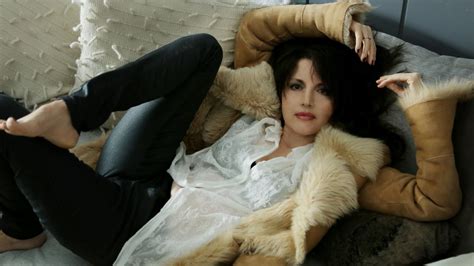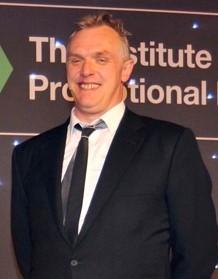A Quote by Tracee Ellis Ross
It would drive the photographers crazy because I would giggle and tell jokes. I was gregarious, and looking back, I realize I had a captive audience.
Related Quotes
When I was 16, I used to drive huge loads of laundry in a three ton truck. I would turn round at night to drive back and see the band in a place north of Toronto called Dunn's Pavilion. I would drive that truck all day and they drive back and all the way until one day I wrecked the truck. I fell asleep and wrecked it. I was OK and so was my helper. I called my dad and the first words out of his mouth were, "are you OK?" I was really lucky I had a kind father.
I've told Michael Jackson jokes. If you got really technical, you could say those are jokes about child molestation. You could, if you got technical. A lot of this is just selective outrage because honestly, the audience are the ones that tell us that something shouldn't be spoken. The audience lets us know. And I've never, in my almost 30 years of being a comedian, seen a comedian continue to tell a joke that the audience doesn't respond to. I've never seen it.
There are jokes I know I want to tell, and there's sort of a rough order, but usually I try to change it up every show, to improvise and talk with the audience. I think when you tell jokes, if you're not careful, you can end up telling the whole list of jokes and then that's it. And that can get a little boring.
Looking back on it now, I understand why that was not possible [to express ourselves], because the pottery employed a dozen people, not all of whom are making pots. And these people had families, children, and they had to have a wage that would allow them to raise their family and they had to get a paycheck every Friday afternoon. So if we had not made pots that would sell it, would not have been possible for these people to be employed.
I learned all those jokes in second grade. Second grade is really where they tell you those horrific jokes, racist jokes and misogynistic jokes that you have no idea what they mean, and you just memorize them because they have a very strong effect, they make people laugh in this kind of nervous, horrible way, and it's only later that you realize that you've got a head full of crap.
Other than his ex-wife and despite appearances with a series of cultivated blondes, Edward de Bono has never publicly aligned himself with a woman. 'I’m looking for a fat, cross-eyed hunchback,' he explains, stifling a giggle. 'A prosthetic hump would do.' His delight evaporates when asked about his three grandchildren. 'Am I a doting grandfather?' He pauses. 'I’m a … something grandfather, yes.' The fact that De Bono remains unperturbed by this lack betrays an emotionally austere childhood, and his passions for play, toys, and bad jokes tell of the same deprivation.
Hans Rosling typically would go into the room, and he would ask the audience questions. Often they had to answer them with clickers or raising their hands or something. We get [data] wrong because 50 years ago that wasn't the case and because we haven't had these graphics we don't realize that over the last 30, 40, 50 years things have changed dramatically. And you see how the world has been getting a better, safer, more homogeneous place. It just has.
There was only one catch and that was Catch22, which specified that a concern for one's safety in the face of dangers that were real and immediate was the process of a rational mind. Orr was crazy and could be grounded. All he had to do was ask, and as soon as he did, he would no longer be crazy and would have to fly more missions. Orr would be crazy to fly more missions and sane if he didn't, but if he was sane he had to fly them. If he flew them he was crazy and didn't have to; but if he didn't want to he was sane and had to.




































